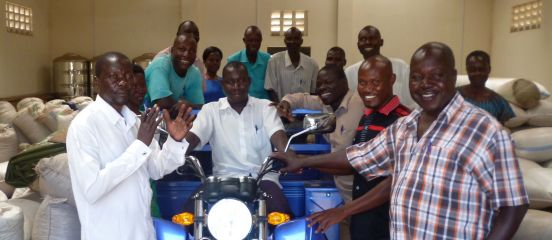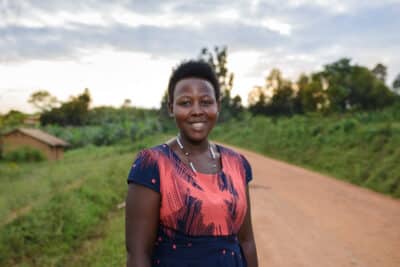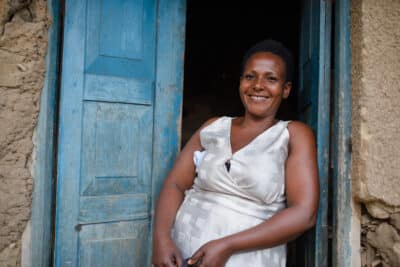Expert view
21 June 2016
Trading spaces: how new markets are opening up for eastern Africa’s smallholder farmers

Blog by Rachel Beckett, Farm Africa’s Country Representative in Uganda
Living in Uganda, I am reminded on a daily basis how central agriculture is to every aspect of life here. With 85% of the population dependent on farming for a living, agriculture is the beating heart of the country’s economy and culture.
But too many farmers are unable to make a decent living from farming, and struggle to afford enough nutritious food for their families or the school costs for their children.
Outbreaks of disease, pests, poor-quality seeds, ineffective farming practices, a lack of tools and climate change are all challenges that are holding back productivity on Uganda’s small farms. But even when yields are good and they have surplus crops available to sell, farmers face another huge constraint: lack of access to lucrative markets.
Many farmers have no choice but to put up with the low prices they get from selling produce at the farm gate. Without storage facilities to keep the crops from rotting, or large enough volumes to attract wholesalers, it’s easy to see how quick sales of small quantities become farmers’ only viable option to make any money at all.
Farm Africa’s FoodTrade project, which officially launches in Dar es Salaam in Tanzania today, is fast making in-roads to opening up lucrative export markets to farming communities growing rice, beans and maize in Tanzania and Uganda. Communities like Katine, a green, fertile sub-county in eastern Uganda.
While Katine is in many ways ideal for small farming businesses to take root, with lush green landscapes and a hard-working farming community, it has had more than its fair share of conflict and instability, which means poverty levels are some of the highest in the country.
Farm Africa has been working in Katine for over seven years, and our FoodTrade project builds on the work we’ve already done to help farmers drive up their incomes. The project is helping farmers market their maize and beans to importers in Kenya, a neighbouring country that often has shortages of staple crops. As a result farmers can grow bigger quantities of crops safe in the knowledge that they will be able to sell them for a healthy profit.
 The first of these export contracts is already signed – the Smart Logistics Company, based in Kenya, has agreed to buy 500 metric tonnes each of maize, soya beans, green grams and beans from Katine’s farming cooperative. And we have no doubt that this will be the first of many.
The first of these export contracts is already signed – the Smart Logistics Company, based in Kenya, has agreed to buy 500 metric tonnes each of maize, soya beans, green grams and beans from Katine’s farming cooperative. And we have no doubt that this will be the first of many.
Farm Africa’s David Ogwang has also been working with the East African Grain Council to secure Katine’s farming cooperative access to well-managed storage houses and equipment to improve post-harvest handling, such as a grain-huller (left) and a tricycle (pictured above) that farmers can use to transport crops safely.
With the right equipment, safe storage facilities and a market to sell to, the future is looking bright for farmers in Katine. In the next six months, as the FoodTrade project increases in scope, I know I’ll see their businesses go from strength to strength.
You can learn more about the FoodTrade project by visiting our dedicated project page.




